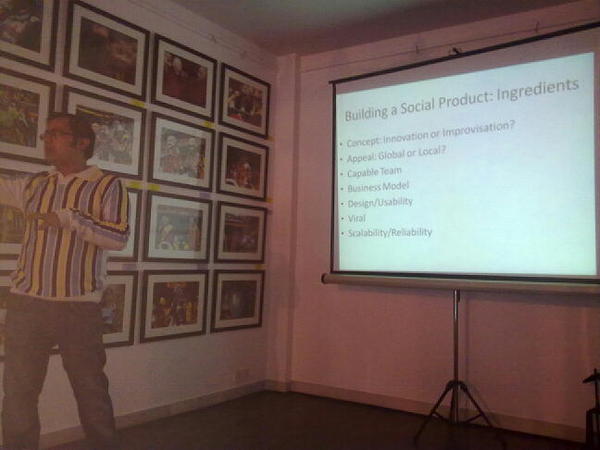Most people start their businesses in partnernships/collaboration with some one they know. It could be a family member, friend, relative or just a known too. Trust is the first thing that people look for before getting into a venture with other things being what the other person brings to the table; money, connections, skill set etc. It’s commonplace to find businesses being run in a fashion where one or more partners put the money(or maybe contacts) and other(s) put skills and effort(or maybe contacts).
Due to inherent nature of the factors in place(time, effort etc), things get a bit difficult at times as contributions start to vary from what they were initially agreed upon. For example: If two people start a business with one person putting the funds and infrastructure and the other bringing in clients and contacts needed to get the job done. Now in this case it’s easy to quantify the funds spent on infrastructure and other activities but it’s a bit difficult to quantify other inputs like efforts, time spent etc. What further makes the puzzle difficult is when both partners feel they are doing their share of the job as initally agreed upon.
A situation like this can easy reach a deadlock with both parties proclaiming to be doing their bit of the business. What further makes matter worse is if both the partners have agreed upon equal share in the profits. The matter gets really complex if say the guy who was supposed to get business and contacts with his effort isn’t doing his part efficiently but believes he is doing it right and thus deserves and equal share in the profit(which they make due to the efforts of the other partner who was just supposed to put funds for infrastruce etc) as mutually agreed upon initially.
Human Ego is another factor in play in situations like these as even though a person might know that he isn’t putting in the required effort in the job but his ego will prevent him from accepting it and agreeing to get an unequal share in the profits. I’ve had a few direct and indirect experiences in this regard which have forced me to think of a way to reduce the possibility of such situations.
A couple possible solutions that I could think of are
1) To partner with someone who is as equal as you are
If both partners are equal in most respects like finances, contacts etc then I think the scope of running into situations where one feels the other isn’t doing enough is reduced. By quantifying one’s contribution in terms of money, contacts or other resources, the factors which could cause confusion/dissatisfaction are reduced. Also, I feel with equal partners it’s a bit easy to find out and accept if one isn’t doing his bit properly
So it’s a good idea to find out in the start what the other person is bringing to the table and ensure that it’s not too high or too low for your contribution.
2) Decide on a profit sharing model based on one’s contribution:
In case of partners with unequal inputs, it’s a good idea to decide on different profit sharing models based on situations with varying contributions. For ex:
a) For every deal where person X does this and this and person Y does this, X gets 66% of the profit and Y gets 33%
b) For every deal where person X does this and person Y does this and this, Y gets 66% of the profit and X gets 33%.
c) For every deal where person X does this and this and this and Person Y doesn’t do anything, X gets all the profit and vice-e-versa.
I feel predeciding things like revenue/profit sharing in various situations where there’s a possibility of unequal contributions will serve as a base and reduce the number of potential conflicts.
What do you think?
 (Pic courtesy Gaurav Mishra)
(Pic courtesy Gaurav Mishra)

